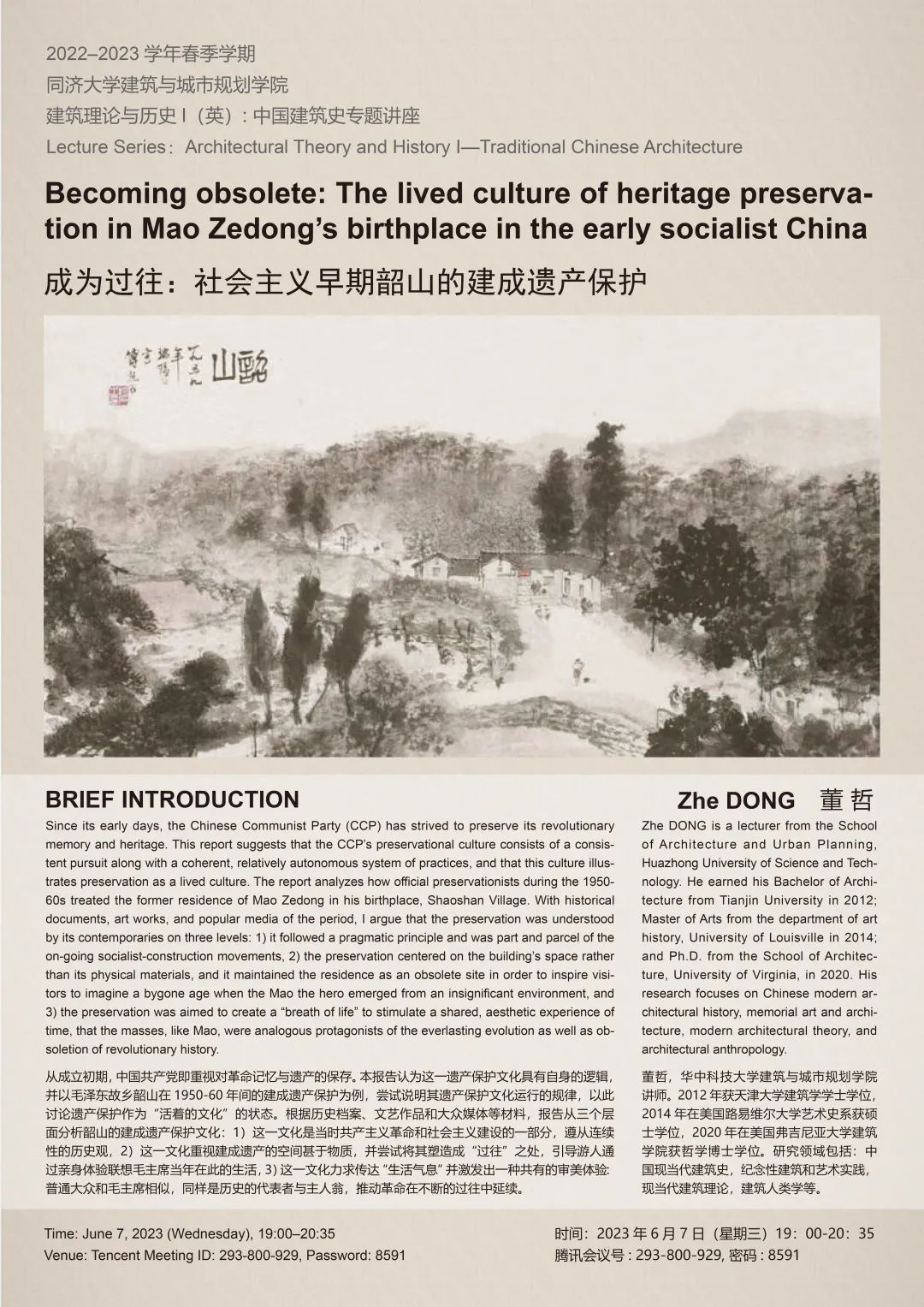
Architectural Theory and History I:
Traditional Chinese Architecture
Becoming obsolete:
The lived culture of heritage preservation in Mao Zedong's birthplace in the early socialist China

Zhe Dong
Zhe DONG is a lecturer from the School of Architecture and Urban Planning, Huazhong University of Science and Technology. He earned his Bachelor of Architecture from Tianjin University in 2012; Master of Arts from the department of art history, University of Louisville in 2014; and Ph.D. from the School of Architecture, University of Virginia, in 2020. His research focuses on Chinese modern architectural history, memorial art and architecture, modern architectural theory, and architectural anthropology.
Introduction
Since its early days, the Chinese Communist Party (CCP) has strived to preserve its revolutionary memory and heritage. This report suggests that the CCP’s preservational culture consists of a consistent pursuit along with a coherent, relatively autonomous system of practices, and that this culture illustrates preservation as a lived culture. The report analyzes how official preservationists during the 1950-60s treated the former residence of Mao Zedong in his birthplace, Shaoshan Village. With historical documents, art works, and popular media of the period, I argue that the preservation was understood by its contemporaries on three levels: 1) it followed a pragmatic principle and was part and parcel of the on-going socialist-construction movements, 2) the preservation centered on the building’s space rather than its physical materials, and it maintained the residence as an obsolete site in order to inspire visitors to imagine a bygone age when the Mao the hero emerged from an insignificant environment, and 3) the preservation was aimed to create a “breath of life” to stimulate a shared, aesthetic experience of time, that the masses, like Mao, were analogous protagonists of the everlasting evolution as well as obsoletion of revolutionary history.
June 7, 2023 (Wednesday), 19:00–20:35
Room B314
Tencent Meeting ID: 293-800-929
Password: 8591
Reference
[1] Bruggeman, Seth C. Here, George Washington was Born: Memory, Material Culture, and the Public History of a National Monument. University of Georgia Press, 2011:1-23.
 ABOUT US
ABOUT US




